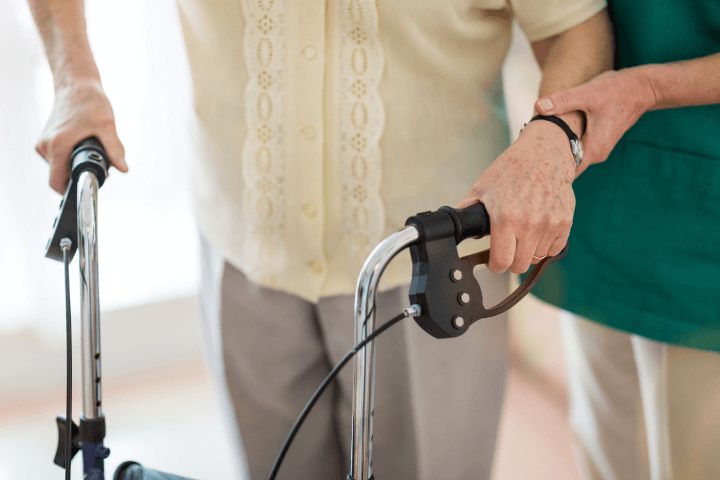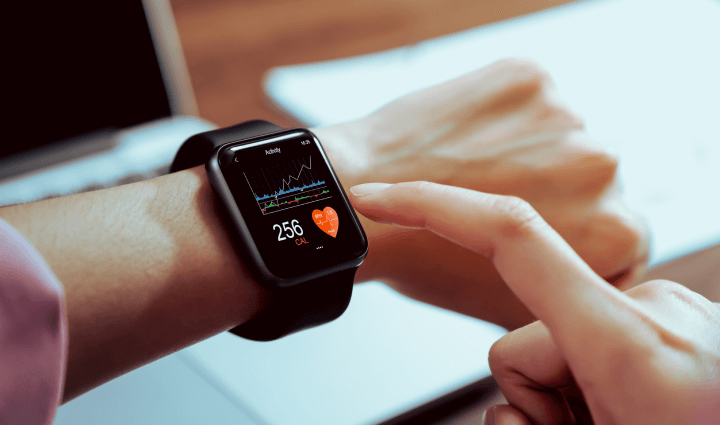Detecting Parkinson's Years in Advance: The Role of Smartwatches in Early Diagnosis
Insights | 06-07-2023 | By Robin Mitchell
As smartwatches continue to increase in popularity, researchers are looking at how they can be used to improve the health and well-being of their users. Now, researchers from the UK have determined that smartwatches could be used to detect Parkinson’s seven years before major symptoms manifest, opening up a crucial window of medical opportunity. What challenge does Parkinson’s present, what did the researchers discover, and how could smartwatches become dominant in the medical industry?
What challenge does Parkinson’s present?
Parkinson’s Disease, a condition that is expected to affect one in 37 in the UK, is a brain disorder which, unlike many other conditions, has no real clear cause or indicator. In the brain of someone with Parkinson’s, the nerve cells responsible for producing dopamine begin to die, and as dopamine is responsible for messaging transmission between nerve cells, this damage results in uncontrollable movement, ranging from shaking to slow movement. While Parkinson’s itself doesn’t directly kill, the effects of it do, and the biggest causes of death are often falls, pneumonia, and cardiovascular.

Early diagnosis can improve a patient's quality of life. Myriad-related conditions, including constipation, depression, and sleep difficulties, can be monitored and treated, and patients can be educated about the importance of regular vigorous exercise, which in a recent study appeared to demonstrate some protective effects4.
Dopamine acts as a messenger between the parts of the brain and nervous system that help control and coordinate body movements. If these nerve cells die or become damaged, the amount of dopamine in the brain is reduced. This means the part of the brain controlling movement cannot work as well as normal, causing movements to become slow and abnormal1.
Unfortunately, there is no cure for Parkinson’s, but if caught early, treatment options can be deployed to improve the quality of life. However, it is this early detection that introduces a major challenge for doctors when diagnosing Parkinson’s early; it has virtually no noticeable symptoms.
Despite massive amounts of research, doctors are still unsure of the true cause of Parkinson’s, meaning that there is no trivial test that can be taken at birth to identify it. Currently, it is believed that there are multiple factors that come to play, including genetic markers and environmental factors. However, no singular genetic marker has yet been found that guarantees the disease, and environmental factors only have limited data with weak relationships.
However, recent research has identified certain genetic mutations that can increase the risk of Parkinson's. These genetic changes are usually inherited, and they may lead to the death of dopamine-producing cells3.
It's believed a combination of genetic changes and environmental factors may be responsible for the condition. A number of genetic factors have been shown to increase a person's risk of developing Parkinson's disease, although exactly how these make some people more susceptible to the condition is unclear. It's been suggested that pesticides and herbicides used in farming and traffic or industrial pollution may contribute to the condition3.
As such, Parkinson’s remains hidden until it shows itself, and when it does, it is often difficult to provide effective treatment.
Smartwatches could detect Parkinson’s years before symptoms manifest
One technological revolution that has seen medical researchers across the planet excited is smartwatches due to the massive amount of biodata they can provide, including heart rate, blood oxygen, and movement. Furthermore, these devices will often log this data over the years, allowing researchers to identify changes in medical data across vast timespans.

In addition to these, smartwatches can also monitor sleep patterns and physical activity levels, which can provide valuable insights into a person's overall health and well-being2.
Now, researchers from the UK Dementia Research Institute and Neuroscience and Mental Health Innovation Institute at Cardiff University have published their findings on data collected from over 100,000 people wearing medical-grade devices over a period of 7 days between 2013 and 2016.
According to the researchers, the data gathered by the smartwatches combined with AI was able to show signs of the disease as early as seven years before the first symptoms manifested. While the watch itself was unable to determine different activities, it instead recorded the average speed of users and monitored how this average speed changed over time.
“With these results, we could develop a valuable screening tool to aid in the early detection of Parkinson’s. This has implications both for research, in improving recruitment into clinical trials; and in clinical practice, in allowing patients to access treatments at an earlier stage, in future when such treatments become available.” - Dr Cynthia Sandor, an emerging leader at the UK Dementia Research Institute at Cardiff University2.
Even though the results from the study have shown great promise in identifying Parkinson’s at an early stage, it was stressed by the research team that such devices would not replace the diagnosis but instead aid as a screening tool whereby those at risk can be identified for further testing. But, the ability to identify potential cases earlier on could help provide improved treatment services as new treatment options become available.
The ability to identify potential cases earlier on could help provide improved treatment services as new treatment options become available. “What we hear a lot from our patients,” Dr. Fleisher said, “is that they were told by their primary care doctor, ‘Hold off on medicine, the medicine will stop working.’” But research hasn't supported that stance, she said. “You want to treat the patient in front of you and optimize their functioning today, so that they can do as well as possible in the long run4.”
Could smartwatches dominate the medical industry?
Of all the tech gadgets and developments that have happened over the past few decades, smartwatches by far present the biggest opportunity for healthcare. As these devices are worn for most of the day, it is possible for smartwatches to constantly feed data into medical AI systems capable of performing real-time diagnostics.
Not only would real-time diagnostics help catch conditions early, but they could even help reduce the cost of medical care, as preventative treatments are often more cost-effective than treatment after the fact. This is especially true in cases of cancer, where a small operation or targeted radiation can remove small cancerous masses, as opposed to cancer that has started to spread.
Moreover, the continuous monitoring provided by smartwatches can also help in managing chronic conditions by allowing doctors to adjust treatment plans based on real-time data2.
As sensor technologies continue to improve, the abilities of smartwatches will also widen, and this will result in more capable devices. Currently, smartwatches struggle with data such as blood pressure and calorie intake, but with time, these will likely be incorporated.
It is not clear if or when smartwatches will be used by local GPs, nor is it clear when smartwatches will be used to identify signs of Parkinson’s, but the study from the researchers shows that they certainly show real promise.
References

